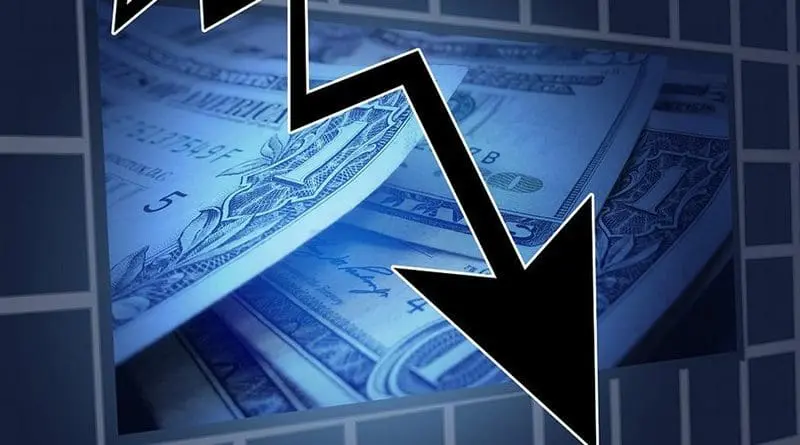Our Easy-Money Economy Is Not Sustainable – OpEd
By MISES
By Carmen Elena Dorobăț*
Rumors of a future financial crisis are spreading once more, as subprime mortgages have made a return under new labels such as “impaired credit” or “complex prime.” On an international level, the latest report by the IMF warns against the “risks of rollback, waning multilateralism, and regulatory fatigue” that may bring about a slowdown in global economic activity and a destabilization of global financial markets. The Economist’s October cover story argues that the cause of the next global recession is likely to be uneven momentum: “This divergence [in growth rates] between America and the rest means divergent monetary policies, too. The Federal Reserve has raised interest rates eight times since December 2015. The European Central Bank is still a long way from its first increase. In Japan rates are negative.”
What “convergent” monetary policies involve, at a global level, is easily deduced from what occurred over the last 10 years. The three rounds of quantitative easing initiated by the Fed in 2013 provided liquidity injections not only in U.S. domestic bank vaults, but also in foreign banks (approximately half of the $US 1.3 trillion). This operation, sometimes dubbed a ‘stealth bailout’, was possible due to the highly connected world capital markets. Once U.S. QE3 ended in October 2014 and the dollar began to appreciate, it was the turn of the ECB, and soon after of the Bank of Japan, to begin their own rounds of purchases of asset-backed securities. Emerging economies joined the game, and either offset the outflow of capital with domestic credit expansion, in order to prevent their currencies from rising and hurting exports, or allowed a slight increase in government bond yields compared to U.S. Treasuries, to attract more foreign funds as a buffer in case interest rates abroad were to rise further. Countries aligned themselves to a level of ‘global inflation’, compensated its reduction or stimulated its growth with additional monetary injections keeping interest rates as low as possible.
“Divergent monetary policies” or “uneven momentum” are only euphemisms for a more disturbing trend: in simpler terms, central banks appear now to be temporarily mis-coordinating monetary inflation and credit expansion. As Mises amusingly explained to his students,
There is a proverb that says: “One doesn’t talk about the gallows in the home of a family, one of whose members was executed.” In this way, one doesn’t talk about the international problem in terms of inflation. When one talks about an international monetary problem, one says there is not enough “liquidity,” not enough “reserves.” (Mises 2010, 78).
With central bank coordination and flexible exchange rates, relative depreciation of currencies is much reduced and relatively painless—and financial markets look quite still on the surface. In its (temporary) absence, some of the inherent deficiencies of the system, the dirty waters lurking underneath, are exposed. If some central banks’ balance sheets expand at higher rates than others, a sharper relative depreciation of their currency makes price inflation more visible domestically, foreign debt more burdensome—particularly for emerging economies—and produces turmoil in financial markets.
But the cause of the next recession cannot be uneven growth momentum or the unequal tightening of monetary policies. What causes financial crises, domestic and global, is the underlying, continuing credit expansion. Central banks acting in unison in this expansion across the world only worsen and augment its effects. Therefore, uneven coordination or destabilized financial markets can at most serve as the trigger or catalyst of a financial meltdown.
The more important point to be made here is that the attempt to avoid a meltdown from occurring in the first place—through renewed regulation or stronger multilateral cooperation—is futile in the long run. Central banks’ free reign over monetary matters has not only brought about the greatest age of inflation in human history, but has led to the exacerbated development of financial markets and financial instruments, no longer connected to sound money or to the ‘real’ economy. The rotten core of the system was only briefly exposed in 2007 during the financial crisis, but bailouts and the regulatory patchwork of the following years have calmed the waters once more. But this cannot last forever. It is naïve to think that the corroded roots of the financial system will last for long, or that real financial stability is achievable without producing at least a partial implosion of the current system built on money produced out of thin air.
A healthy, restructured, and ‘sustainable’ financial system is only possible with sound money whose production is no longer arbitrarily and politically determined:
We must realize that money can operate, it can work, only if we have a system in which the government is prevented from manipulating the value of the money… we ought not to have a system of money in which the value of the monetary unit is in the hands of the government so that the government can operate, manipulate the money market in the way it wants to. If the government destroys the monetary system it destroys perhaps the most important foundation of inter-human economic cooperation. (Mises 2010, 83)
Unfortunately, we are now likely too late, and past the point of no return. Tracing our steps back to a healthy monetary and financial system will undeniably be very painful. Nevertheless, postponing the inevitable collapse is only going to make it much worse.
About the author:
*Carmen Dorobăț has a PhD in economics from the University of Angers, and is Assistant Professor of Business at Leeds Trinity University.
Source:
This article was published by the MISES Institute

